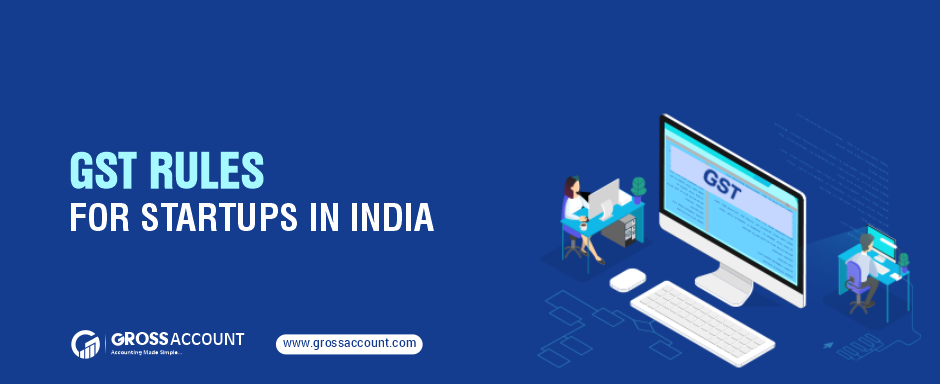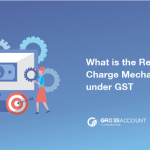GST, or goods and services tax, will be a single tax that will replace all other taxes. It enforces the “One Nation, One Tax” policy. An analysis of the impact of GST on startups uncovers that they will benefit from the tax.
The Goods and Services Tax (GST) that was implemented in India has had a significant impact on how startups organize. Certain indirect taxes have been eliminated, and everything has been combined under the GST.
In India, who is eligible for StartUps?
Startups that match the definition specified in G.S.R. regulation 127 (E) are eligible to apply for Startup India Action Plan recognition. At the time of application, startups must submit the required documents.
Startup Identification Eligibility Criteria:
-
The startup should be registered as a partnership firm or a limited liability partnership, or it should be established as a private limited company.
-
Sales for the previous fiscal year were expected to be less than INR 100 crore.
-
During the first 7 years after the establishment (10 years for biotech companies), a corporation is considered a startup.
-
The startup should be focused on improving/innovating existing products, services, and processes, as well as having the potential to boost income.
-
A “Startup” is not defined as an entity founded by the division or rebuilding of an existing business.
Impacts of GST on StartUps
Let’s take a look at how GST makes an Impact on StartUps.
1. A higher registration threshold
According to the existing GST structure, any company with a turnover of more than Rs 5 lakh must register for GST and pay taxes (different in different states). This threshold is set at 20 lakhs under GST, which specifically excludes many small businesses, including startups. Small enterprises having a turnover of between Rs. 10 lakhs(for special category state) and Rs. 20 lakhs can take advantage of a lower-tax arrangement under the GST, however, it is optional. It’s referred to as the composition strategy. This will reduce newly founded enterprises from their tax burdens.
Also read: HOW CAN YOU OPT FOR A COMPOSITION SCHEME IN SIMPLE STEPS?
2. Startups can get a tax credit on their purchases.
The service industry involves a large number of startups in India. Before the establishment of GST, they were required to collect and pay service tax to the government. One of the main issues was the non-use of GST paid on purchases made for company reasons. There was no possibility for claiming state tax credits against service tax liabilities.
The problem has been solved because now GST has brought various indirect taxes under its cover. Startups can deduct GST paid on purchases (such as office supplies) from GST paid on sales.
For Example,
The startup spends Rs 50,000 on office supplies (Include 12 % GST) and sells the products at Rs 80,000 to another company (Include 18 %GST). Here’s how a startup can get a credit for taxes paid on purchases after the GST was implemented:
In the case of a GST of 18%.
GST on service provider(80,000*18%) = 14,400
Less: GST paid while purchasing (50,000*12%) = 6,000
Net GST to be paid = 8400
3. GST online procedure is simpler.
The entire GST process is done online, from registration to return filing and GST tax payment. Startups don’t have to waste time going to tax authorities to obtain numerous registrations such as Excise, VAT, and Service tax.
Startups sometimes operate on limited budgets and cannot devote their resources to pay numerous tax compliance issues such as excise tax, VAT, CST(Central Sales Tax), service tax, and more. GST will include all of this, lowering the amount of time spent on business taxes. In addition, entrepreneurs that sell both goods and services will find it relatively easy to submit and pay a single GST tax rather than two VAT and service taxes.
4. The registration and filing of tax returns is a simple
The days of rushing around tax offices to submit documents and receive a registration number are gone for good. The entire GST registration and return filing process are now done online, making it not only simple but also highly efficient. If you have all of the necessary paperwork, getting a registration number is as simple as clicking a few buttons.
The implementation of GST will provide significant financial benefits to income startups. GST has offered assistance to India’s startups and small businesses, owing to a considerably higher confirming presence, tax credits on purchases, and easier processes.
5. E-commerce and other tech startups
Many startups are technologically advanced, which means they have a large web presence. Many startups sell their products and services on the internet. GST is applicable throughout India, hence interstate commodities movement is not complicated. Currently, each state has its Tax laws.
When there is a failure to submit paperwork, tax authorities may take goods. Again, states like Kerala, Rajasthan, and West Bengal treat them as facilitators or mediators and do not need them to register for VAT. All of these differences in treatment and perplexing regulations would be eliminated with GST.
6. Increased efficiency in logistics
To avoid the current CST(Central Sales Tax) and state registration taxes on inter-state movement, India’s logistics industry had to operate multiple warehouses across states. Warehouses have been forced to run below capacity in the past, resulting in higher operating expenses. GST will bring India closer together by reducing barriers to economic movement between states. This will result in national warehouse consolidation.
As a result of GST, warehouse operators and e-commerce businesses have expressed interest in establishing warehouses in strategic locations such as Nagpur, India’s zero-mile city with excellent connectivity. Reducing excessive logistics costs will boost earnings for startups involved in the shipping of products.
7. Manufacturing startups face a tax burden.
The manufacturing sector would face the brunt of the impact. Only manufacturing companies with a turnover of over Rs 1.50 crore are required to pay excise under current laws. The turnover limit has been decreased to Rs 20 lakh with the implementation of GST, which has increased the tax burden for many manufacturing startups.
However, when GST is introduced, most of the industry’s existing challenges would be a thing of the past. India will become a single market where products can keep flowing and startups would have to deal with the far limited government intervention. As a result, GST is a completely new tax structure that is currently sweeping India. Businesses, particularly startups, would experience difficulties in transitioning to GST and implementing it in their businesses.
How can startups make the invoicing process much easier?
Through the help of accounting software, the companies can easily generate the invoices for their consumers and keep them save the record of their clients in the database.
Through the accounting software, businesses can easily calculate the total amount with the GST without any errors. On The other side, the organization deducts the error if they calculate the total of the invoices without using the software.
While following a few steps the companies can easily provide the invoices to their clients including goods and services taxes and get the payment as soon as possible.
Create the invoice:
Users can generate several invoices with ease due to the user-friendly software. Users simply need to input the specifics of the products or services delivered, as well as the amount and applicable GST. The software will generate an invoice for you once you click the create invoice button.
Notify customers:
Now the customers have not waited for receiving the invoices because the provided email through the companies sends the invoice link or document via mails. So, while locating far they can easily get the invoices in between the minutes.
Receive Payments:
Also, in invoicing, the companies can provide the details of their banking details. So, these details through the organizations can easily pay the amount via net banking after receiving the emails of the invoices.
In addition, customers can download and save the invoice for future reference. If businesses want to make partial payments on an invoice, they can do so in a timely way to ensure that all of their business operations are done correctly.
Recommended for you: HOW TO CHOOSE THE RIGHT ACCOUNTING SOFTWARE FOR YOUR BUSINESS?
Conclusion
Entrepreneurs might save money by simply paying GST instead of many taxes. The single-paying-taxes method assists new enterprises in growing and achieving their objectives in a competitive market.
Calculating GST has become simple for businesses, even when utilizing accounting software. GST accounting software is also cost-effective and saves the time of the businesses.
Contact Us for the free demo of accounting software!






